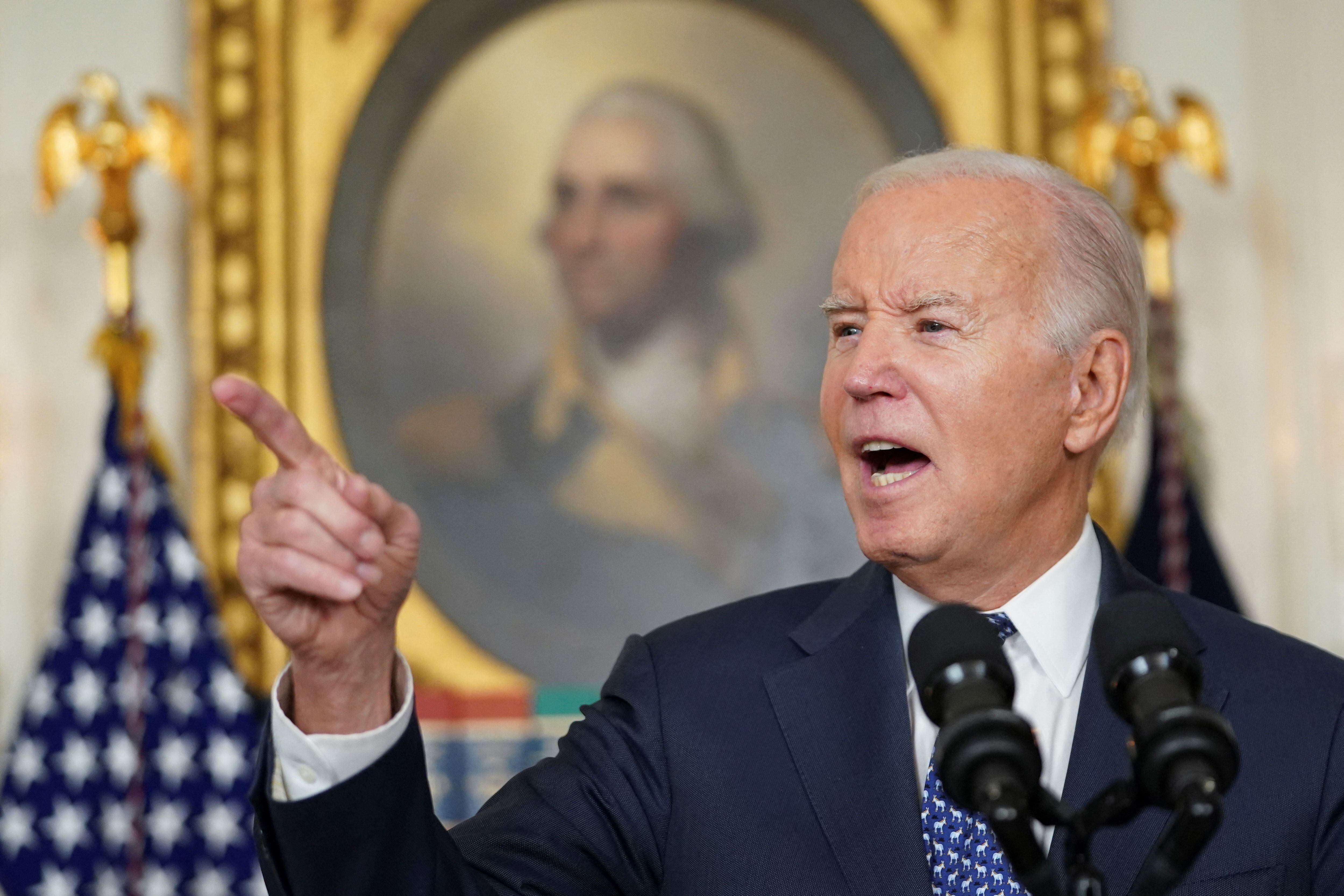

Joe Biden spoke at the White House this afternoon to discuss the conclusion of the investigation into his mishandling of classified documents. He appeared angry and defiant. He welcomed special prosecutor Robert Hur’s decision that there were no grounds for charges, but bemoaned some passages in the report that his lawyers had already called inflammatory and that called into question his cognitive ability. “My memory is fine,” he said at one point, replying to the report’s assertion about his limitations. It also said that he had trouble remembering the timing of his son Beau’s death. “How in the hell dare he raise that,” he said, his voice almost cracking, before adding that he remembers his son, who died in 2015 from brain cancer, every day.
In his remarks, Biden celebrated Hur’s drawing a line between his case and Trump’s, for which the latter is charged with 40 alleged crimes. Saying that he was “especially pleased” that Hur’s report “made clear the stark differences between this case and Donald Trump.”
Hur emphasizes in his report that “after being given multiple chances to return classified documents and avoid prosecution, Mr. Trump allegedly did the opposite.” “According to the indictment, he not only refused to return the documents for many months, but he also obstructed justice by enlisting others to destroy evidence and then to lie about it,” the repor adds. “In contrast, Mr. Eiden turned in classified documents to the National Archives and the Department of Justice, consented to the search of multiple locations including his homes, sat for a voluntary interview. and in other ways cooperated with the investigation,” it explains, as Biden also reminded in his response.
“This was an exhaustive investigation, going back literally more than 40 years. Forty years, when I became a United States senator when I was a kid. The special counsel acknowledged I cooperated completely. I did not throw up any roadblocks. I sought no delays,” the president said of his response to the investigation into his handling of classified documents. And noted that he cooperated with the probe and sat for a five-hour interview on October 8th and 9th, “even though Israel had just been attacked by Hamas.”
The president’s intervention at the White House came hours after it was confirmed that special prosecutor Robert Hur will not press charges against him for taking official documents, including some classified as confidential, from his time as a senator or vice president, to a private office and his private home.
Although he won’t press charges, the special prosecutor’s 388-page report criticizes Biden for his handling of classified documents and argues that his practices presented “serious risks to national security.” “Our investigation uncovered evidence that President Biden willfully retained and disclosed classified materials after his vice presidency when he was a private citizen,” read the report, but added that “the evidence does not establish Mr. Biden’s guilt beyond a reasonable doubt.”
Biden has thus avoided becoming the first sitting U.S. president to be indicted for a possible crime. However, the report portrays Biden as an octogenarian who has lost his memory and does not even remember when his son died or when he was vice president, which is a major political blow. Biden’s lawyers consider it a misrepresentation of what happened and denounce the report as “inflammatory.”
Republicans, on the other hand, believe that there is a double standard in the application of the law and are proclaiming that Biden is unfit to hold the office.
In a day of high political and judicial activity, this Thursday an oral hearing was held before the Supreme Court in which it was debated whether Donald Trump can run for the next elections or should be disqualified from doing so for his actions related to the assault on the Capitol. The judges will rule in the coming weeks, but their interventions suggest that they are mostly inclined to let Trump run for the presidency once again.
Sign up for our weekly newsletter to get more English-language news coverage from EL PAÍS USA Edition